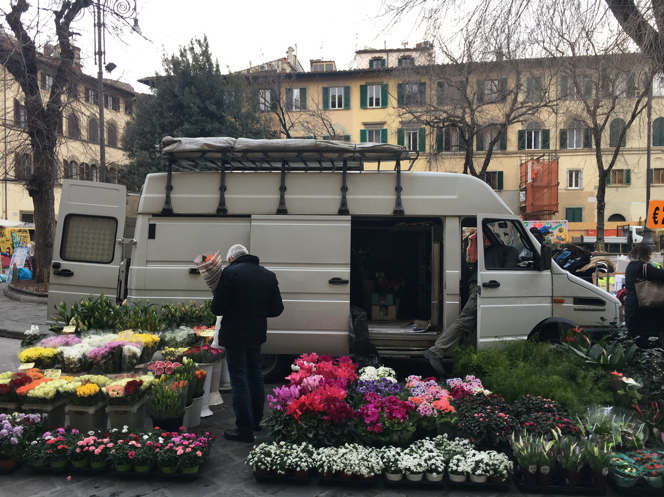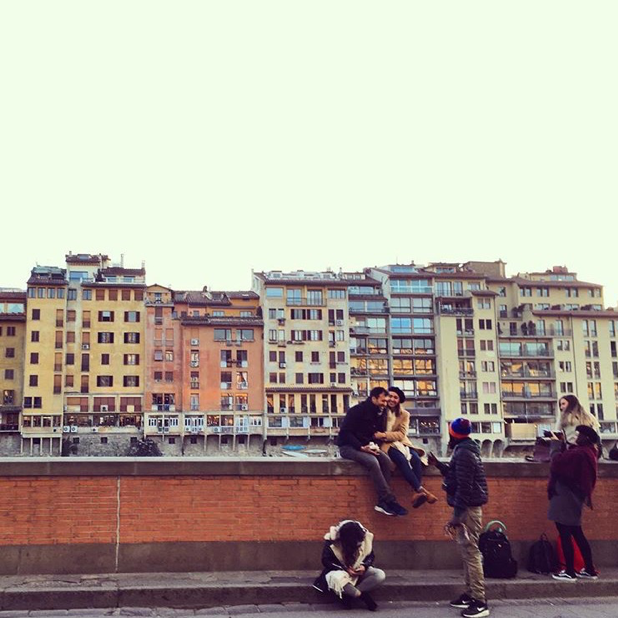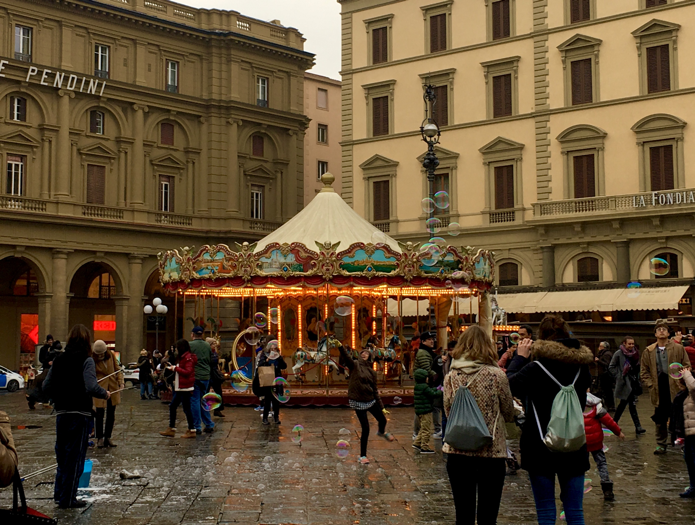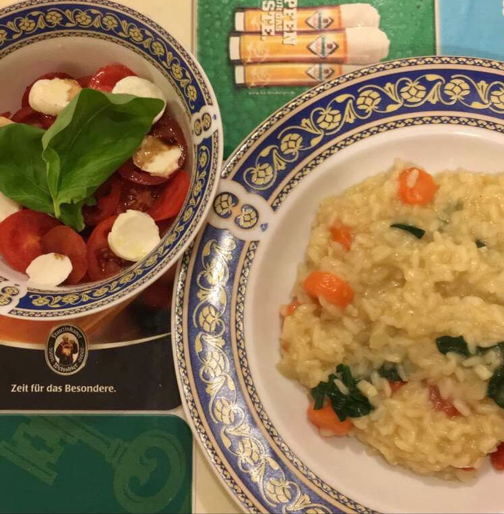BY WILLA GIFFIN
If you know me, you most likely know that I am constantly singing and humming as I go about my day: in the shower, while I cook, walking to class, taking a hike, reading a book, and yes, I’ve even been known to sleep-sing.
I just can’t help it. A song (or 10) gets stuck in my head, and absolutely no amount of distraction methods or mechanisms can unstick the tune that has adhered itself to every nook and cranny of my brain.
The Italian language seems to have this same effect on me. The graceful words and their corresponding melodies swirl around, and resonate with me, worming their way into my mind. The words replay in my brain like a broken record and I can’t help but unleash them, saying them out loud, over, and over and over again.
Italians converse with a catchy, deliberate melody that swells and dips, with specific rhythm, dynamics, fierce passion, and not so subtle hand choreography.
Music fills the air in any place that there is speaking at all. The train station is operatic. The open markets are symphonic. Melodies spew from all directions, and are conducted by the vendors, who direct and control any discordant tunes of whining hagglers.


I guess it makes sense that the language gets stuck in my head in the same way that a good Adele jam does. Every Italian conversation is its own song; every sentence is a lyric; every word, a note.
Like the songs that so often overwhelm my thoughts, I find myself parroting Italian phrases that I’ve picked up in passing, throughout my day. Shampooing my hair, I mimic the pitch, tempo, and intonation, of “faccio la doccia” (I shower). Making my bed in the morning, I rehearse “Buongiorno, vorrei un cornetto” (Good morning, I would like a croissant.) Studying for my quiz, I hum “in bocca al lupo” (a phrase meaning good luck that literally translates to “in the mouth of the wolf,” which seemed strange, until I thought about what its must be like for a foreigner to learn “break a leg”).
It is all just so captivating and pleasing to the ear. Often times I am so fixated on the beautiful pitches of what is being performed in front of me, that I forget to listen and comprehend the words themselves.

Before I left for Italy, I, of course, had to read Eat, Pray, Love. I paid special attention to the portion Elizabeth Gilbert dedicated to her pilgrimage to Rome, which she entitled “Eat.” (I’m choosing to take “Eat” as a personal, authoritative command to me from the wise and experienced author herself, to eat eat eat! And I have intently obeyed.)
In “Eat…”, Gilbert refers often to her favorite Italian word: “attraversiamo” (we cross over). She explains that she loved to stroll with friends along the streets of Rome, intentionally walking on the side of the street opposite of her destination, so as to give herself the excuse, when the time came, to suggest that the group “attraversiamo”.
Every time I cross a street in Italy, I think of Elizabeth Gilbert and her favorite word. As I cross each street in Florence, and “attraverso”, I also consider what my favorite, exquisite Italian words that I’ve learned, might be. After a lot of crossing streets and therefore a lot of thought, I have come to the conclusion that my favorite word changes by the day, as does the song that is stuck in my head.
Today my favorite word is “abbastanza”. Yesterday, I overheard a young woman on my train to the beautiful city of Verona, say “abbastanza” playfully over and over, to her boyfriend. While I had no clue as to its meaning, the fun multi-syllabic word filled with pleasing soft “a” sounds, very much became stuck in my head like a pop tune. It became my mantra for the day. I hummed it under my breath as the train rocked me into a deep, ugly, mouth-wide-open, kind of sleep.
**Turns out “abbastanza” means “enough”…. a word, and in fact a concept, that seems to be null and void for me over here. Phrases in America such as, “thank you that’s enough parmesan,” never ever seem applicable for me in Italy.**
Last week, my favorite thing to say was “Mi dispiace”. I couldn’t get the melancholic tune and slow lilt for “I’m sorry” out of my head—and for good reason. I’m constantly needing to apologize for bumping into people and things and animals, so “mi dispiace” comes in handy, more than I’d like it to.
I was in a little grocery store when “mi dispiace” first cemented itself in my thoughts, after an instance when I’d forgotten it, causing me to swear it would never slip my mind again. A grocery store clerk was attempting to pass by me, pushing an enormous stock-cart full of produce and products in front of him. I initially didn’t realize that I was blocking his path, until he said “scusi” (excuse me—another snappy word that’s fun to rehearse, and always applicable). Desperately searching for the correct Italian response, and feeling excessively panicked that I was in the man’s way, my instincts took over. My mind clasped onto the only word within its grasp, and I said “sorry” in English! Given that probably 80% of Florentines speak English, and the other 20% would likely know the word for “sorry”, apologizing in English was really not a big deal… The problem was the way I said “sorry”—in a very, very, overly thick, exaggerated, Italian accent, that probably seemed like I was making a mockery of the kind grocery clerk, his family, his friends, and his entire culture, all in just a single word. I left the grocery store, with “mi dispiace” in my mind, on-loop.
Right now, as my dinner simmers on the stove, I hum my favorite word for the moment: “mangia.” Mangia mangia mangia mangia mangia mangia.

Willa Giffin studied abroad in Florence, Italy in Winter 2017: http://eap.ucop.edu/OurPrograms/italy/Pages/language_culture_florence_quarter.aspx



